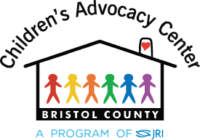The Children’s Advocacy Center of Bristol County recognizes that to protect children from abuse, prevention services must address individuals, families and the community.
Who are the perpetrators of child sexual abuse?
- Most children who are sexually abused are victimized by someone they know (9 of 10); this includes relatives (30%-40% of our cases), family friends, clergy, teachers, and babysitters. No valid profile of a perpetrator exists – it can be anyone.
- Some children and adolescents sexually abuse other children (20-30% of our cases).
- Perpetrators can be of any race, religious belief or sexual orientation.
- Your child should know this rule: No one should touch a child’s private body parts except to keep them clean or for medical purposes.
- Many perpetrators are well-educated and respected members of the community.
How do potential abusers gain access to and “groom” children?
- Work to gain trust and friendship of child and often of the entire family; they are patient.
- Appear to be someone the entire family can trust and turn to for help.
- Often prey on single parents and exploit mother’s fear that their child(ren) don’t have a father figure or stable home life.
- Once trust is established with the child and the family – find ways to be alone with child.
- Pay attention to what children like and dislike.
- Often begin abuse by “testing” child’s ability to protect himself/herself by telling sexual jokes, horseplay, back rubs, kissing, etc.
- Take advantage of child’s natural curiosity – if child seems comfortable and/or curious about touching, the perpetrator will slowly increase the sexual contact.
- When the perpetrator is a parent, he/she may isolate children from the other parent by blocking communication and acting like the good guy.
What are some ways I can protect my child?
- Talk with children early and often throughout their development about sexual abuse and inappropriate touching.
- Use the correct names for private body parts. Be sure to tell them that inappropriate touching is NEVER the child’s fault.
- Talk with children early and often throughout their development about healthy sexuality.
- Listen and believe your children if they are trying to tell. Children RARELY lie about sexual abuse.
- If something is not right about a child’s relationship with an adult or another child, act on it.
REMEMBER:
YOU
are the first line of defense in protecting your child from sexual abuse
Children need
CHAMPIONS
to stand up for them
Report Suspected Abuse
800-792-5200

